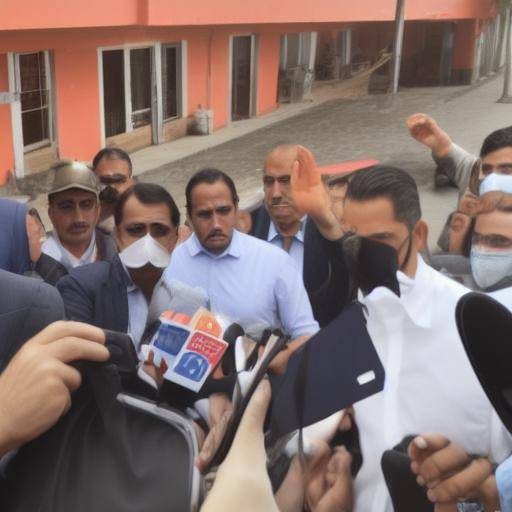
A credit report is a key tool that financial institutions use to evaluate people's solvency. However, sometimes these reports may contain errors that negatively affect a person's image of credit. It is crucial to correct these mistakes to ensure that our credit report faithfully reflects our credit history.
In this article, we deeply immerse ourselves in the process of dispute, correction and assurance of the accuracy of the credit report. You will learn to identify mistakes, take appropriate steps to correct them, and maintain the accuracy of your credit report. In addition, we will provide practical advice, real examples and expert views to ensure that you get a full and detailed understanding of this critical issue.
Introduction
A credit report is a document that collects and analyzes information related to your payment history, debts and open accounts. The accuracy of this information is vital as it is used by lenders, owners and employers to make decisions about their financial solvency. It is therefore essential to be aware of possible errors that may appear in your credit report and to know how to effectively correct them.
History and background
The concept of the credit report originates in the 19th century when merchants shared information about customer credit to reduce the risk of default. Over time, this system became what we now know as credit information agencies, such as Equifax, Experian and TransUnion.
Access to credit information has been widespread and sophisticated, leading to greater awareness of the importance of accuracy in credit reports. Technological advances have allowed for more comprehensive monitoring and facilitate the identification and correction of errors.
Detailed analysis
Disputing a credit report is the process by which a consumer questions the accuracy of the information contained therein. This may include errors in personal data, incorrectly reported payments, or the presence of accounts that do not belong to you.
Correcting these mistakes requires following a specific process, including providing documentary evidence to support your dispute. It is essential to know their rights in this process and to understand how to communicate with credit information agencies and creditors to achieve a satisfactory resolution.
The accuracy of your credit report is vital to ensure that you accurately reflect your credit history. Keeping an accurate report will help you get better interest rates, more favorable loans, and a strong credit image.
Comprehensive review
By comparing dispute, correction and precision, it is crucial to understand that these concepts are interconnected and play a key role in the integrity of your credit report. The dispute represents the starting point when identifying a possible error, the correction is the process to resolve that error, and the accuracy is the desired result: a truthful and correct credit report.
Cases of dispute, correction and precision can vary significantly in their complexity and focus, depending on the nature and severity of the identified errors. It is crucial to address each of these steps methodically and to be prepared to follow the process until a satisfactory resolution is obtained.
Practical advice and practical advice
Here are a number of practical tips for effectively resolving errors in your credit report:
- Regularly review your credit report: Set the habit of reviewing your credit report at least once a year to identify possible errors in a timely manner.
- Document your dispute: If you find an error, carefully document what the problem is and what evidence supports your claim. The more information you provide, the easier the credit reporting agency will solve the problem.
- Communicate in writing: Although you can file a phone dispute, it is recommended to do so in writing to leave a clear record of your claim and the evidence supporting it.
- Be persistent: The dispute and correction process may take time and effort, but it is essential to be persistent and follow the process until a satisfactory resolution is obtained.
- Proactively correct errors: Once a dispute is resolved, make sure that the correction is accurately reflected in your credit report and does not reappear in the future.
Industry perspectives and expert opinions
Credit and finance experts underline the importance of maintaining a precise and up-to-date credit report. Accuracy in credit information is crucial to ensuring equity in access to credit and protecting consumer rights.
Financial industry experts suggest that consumers know their rights in the dispute and correction process and recommend that detailed records of all correspondence related to the credit report be maintained.
Case Studies and Real-life Applications
An example of the importance of accuracy in the credit report is the case of Ana, a professional who discovered that her credit report contained inaccurate information about a loan she had never requested. After an intense dispute and correction process, he managed to correct the error and restore his credit history.
This case illustrates the importance of attentive to the accuracy of the information contained in the credit report and the need for proactive measures to correct errors.
Future trends and predictions
As technology continues to advance, the dispute and correction error process in the credit report can be more efficient and accessible to consumers. Credit reporting agencies are expected to implement measures to facilitate the dispute process and accelerate error correction.
In addition, awareness of the importance of accuracy in the credit report is expected to continue to grow. This can lead to greater transparency and accountability of credit reporting agencies and those responsible for credit information.
Conclusion
Disputing, correcting, and ensuring the accuracy of the credit report are fundamental processes to ensure that the information contained therein is accurate and accurately reflects your credit history. The importance of maintaining a precise credit report cannot be underestimated, as it directly affects their access to credit and financial stability.
By identifying and correcting errors in your credit report, you are protecting your rights as a consumer and ensuring that your credit profile is assessed fairly and accurately. Knowing your rights, being informed about the dispute process and keeping detailed records of all correspondence related to your credit report are key steps to ensure that your credit report is accurate and updated.
Frequently asked questions
How can I identify errors in my credit report?
To identify errors in your credit report, carefully review each section for incorrect information, such as unrecognized accounts, inaccurately reported payments or inaccurate personal information.
What should I do if I find a mistake in my credit report?
If you identify an error in your credit report, you must file a dispute with the credit reporting agency that published the report. It should provide documentary evidence to support its claim and follow the dispute and correction process until a satisfactory resolution is obtained.
How long can the dispute and correction process take?
The time required for the dispute and correction process may vary depending on the complexity of the case and the cooperation of the entities involved. In some cases, it can be resolved in weeks, while more complex cases may take several months.
Can the accuracy of my credit report affect my opportunities to get loans or credit?
Yes, the accuracy of your credit report may have a significant impact on your opportunities to get loans or credit. Lenders and creditors use the information in their credit report to assess their financial solvency, so it is crucial that the information be accurate and up-to-date.
What is the role of credit reporting agencies in the dispute and correction process?
Credit reporting agencies are responsible for investigating and resolving consumer disputes. They are obligated to conduct a thorough investigation and correct any identified errors in the credit report.
What can I do to avoid future errors in my credit report?
To avoid future errors in your credit report, it is essential to keep detailed records of your financial transactions, be aware of possible errors and to regularly verify the accuracy of your credit report.
Are there free resources to help me in the dispute and correction process?
Yes, there are free resources that can help you in the dispute and correction process, including consumer defense organizations, government consumer protection agencies and financial advisors. These resources can provide guidance and support in the error correction process in your credit report.
In short, correcting errors in your credit report is a fundamental process to ensure the accuracy of your credit history. By being informed about your rights, by methodically following the dispute and correction process, and keeping a precise credit report, you are protecting your financial health and ensuring that your credit profile is evaluated fairly and accurately.












